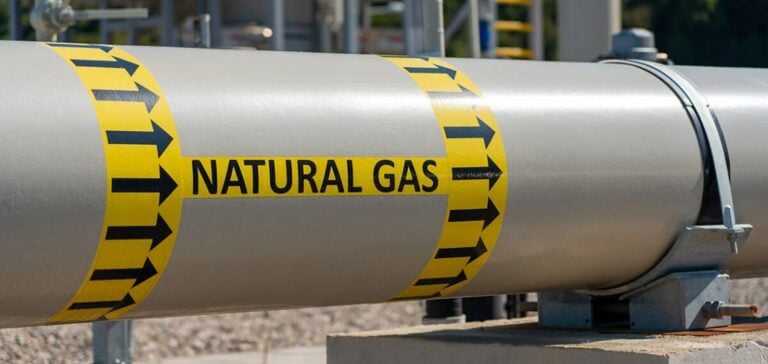The import of liquefied natural gas (LNG) from the Sakhalin 2 project, located in Russia’s Far East, remains stable for major South Korean and Japanese players despite U.S. sanctions on Gazprombank, Russia’s key financial intermediary. The concerned buyers, including Kogas, JERA, Tohoku Electric, Kyushu Electric, and Osaka Gas, have confirmed that they do not rely on this institution for their transactions.
Korea Gas Corporation (Kogas), South Korea’s main LNG importer, maintains an annual contract of 1.5 million metric tons (mt) from Sakhalin 2. A Kogas spokesperson stated the company has “no ties with Gazprombank” and does not foresee disruptions due to the U.S. sanctions.
In Japan, several major energy companies have also affirmed their independence from Gazprombank. JERA, the country’s largest power producer, which imports 2 million mt/year of LNG from Sakhalin 2, confirmed its operations would not be affected by these restrictions. Similar statements were made by Tohoku Electric, which imports 420,000 mt/year, and Kyushu Electric, which imports 500,000 mt/year. Both companies have ceased using Gazprombank for their financial settlements.
During a press conference in Tokyo, Osaka Gas President Masataka Fujiwara also confirmed that his company, which imports 200,000 mt/year of Sakhalin 2 LNG, does not rely on the sanctioned Russian bank, ensuring the continuity of supplies.
Flexibility Maintained Through U.S. Treasury Licenses
The U.S. Department of the Treasury recently extended licenses allowing specific energy transactions with sanctioned Russian entities. However, Gazprombank is not included among the entities benefiting from these exceptions. A specific license, valid until June 28, 2025, permits the import of oil and LNG from the Sakhalin 2 project to Japan, underscoring the strategic importance of these supplies for Japan’s energy security.
According to Yoji Muto, Japan’s Minister of Economy, Trade, and Industry, the government will continue discussions with the United States and other G7 members to ensure access to these energy resources beyond the license’s expiration. “We will take all necessary measures to secure a stable supply to Japan,” the minister stated at a press conference in Tokyo.
A Tense Geopolitical Context
Sanctions on Gazprombank, announced by the Biden administration on November 21, are part of a series of measures aimed at isolating Russia and supporting Ukraine amid the ongoing conflict. Along with Gazprombank, these sanctions extend to its six foreign subsidiaries and several other Russian financial institutions. While these actions primarily target Russia’s financial capabilities, they raise questions about potential consequences for Russian energy exports, particularly to Asia.
In response, Asian players involved in Sakhalin 2 are reinforcing measures to comply with regulations while minimizing disruptions. The total annual LNG production capacity of Sakhalin 2, which amounts to 9.6 million mt, remains largely committed to the Japanese market, reflecting a critical dependency in the context of the global energy transition.






















